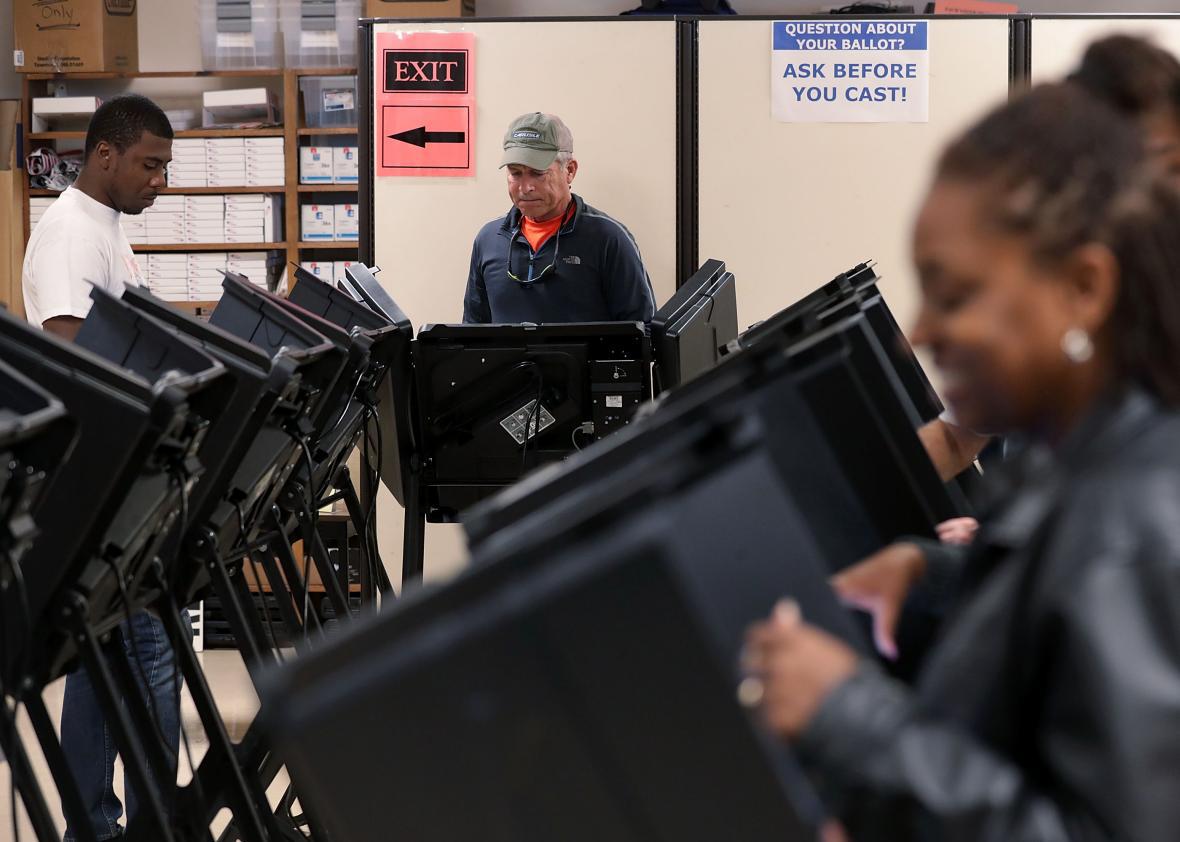A closely divided panel of judges on the U.S. Court of Appeals for the 6th Circuit allowed Michigan’s ballot selfie ban to take effect Friday. In an opinion by Judge Jeffrey Sutton, the court reversed an injunction issued by a district court Monday barring the state from enforcing the law this election season. Sutton’s primary concern was that the plaintiff, ballot selfie aficionado Joel Crookston, brought his suit against the law so close to election season. “Timing is everything,” Sutton wrote. “Crookston’s motion and complaint raise interesting First Amendment issues, and he will have an opportunity to litigate them in full—after this election.” He continued:
With just ten days before the November 2016 election, however, we will not accept his invitation to suddenly alter Michigan’s venerable voting protocols, especially when he could have filed this lawsuit long ago.
Sutton made clear that he’s skeptical of Crookston’s claims. It’s “not clear,” he wrote, “whether a ban on ballot selfies ‘significantly impinges’ Crookston’s First Amendment rights. A picture may be worth a thousand words, but social media users can (and do) post thousands of words about whom they vote for and why.” But he insisted that these issues should be explored after the election, when the district court can hold a hearing and consider evidence on both sides. “Lingering issues remain,” Sutton concluded, and “there will be time for due deliberation” in the coming months.
In a vigorous dissent, Chief Judge R. Guy Cole criticized the majority for allowing Michigan to force to voters to choose “between their freedom of expression and their right to vote.” Noting that the penalty for taking and sharing a ballot selfie is the nullification of one’s vote, Cole wrote: “In permitting the loss of such a fundamental right, the majority puts the administrative interests of the state above the individual rights of the citizens of Michigan.”
Every other court to consider this question, Cole noted, has concluded that ballot selfie bans violate the First Amendment. It’s easy to see why. As an explicit restriction on speech, the laws must at least be “narrowly tailored to serve a significant governmental interest.” And while preventing voter coercion may seem to be a significant interest, Michigan “has not provided any evidence to show that the problems these laws and instructions were meant to address actually exist in Michigan today.” That, Cole explains, is a problem: “When a state infringes upon the freedom of speech of its citizens, it cannot simply assert a government interest in the abstract, it must show that those interests exist and are actually served by the prohibitions imposed by the state.”
But “even if the state had provided evidence from this century that digital photography at polls has created the problems listed above,” Cole writes the ballot selfie ban “would still be unconstitutional” because it is “not narrowly tailored to the government interests asserted.” The state’s blanket ban on ballot photography constitutes the “path of least resistance”—but states are prohibited from sacrificing “speech for efficiency.” Michigan’s law “curtails the speech rights of all voters, not just those motivated to cast a particular vote for illegal reasons,” a breadth unacceptable under the First Amendment.
If the 6th Circuit ultimately affirms Sutton’s tentative conclusions and upholds Michigan’s ballot selfie ban on the merits, it will have placed itself in direct opposition the 1st Circuit, which emphatically invalidated New Hampshire’s nearly identical law as “antithetical to democratic values.” That, in turn, may persuade the Supreme Court to step in and resolve the circuit split. The current court is the most speech-protective in history. And it seems quite likely that the justices will send Sutton’s Friday opinion the way of his anti-marriage equality ruling—into the ash heap of history.
